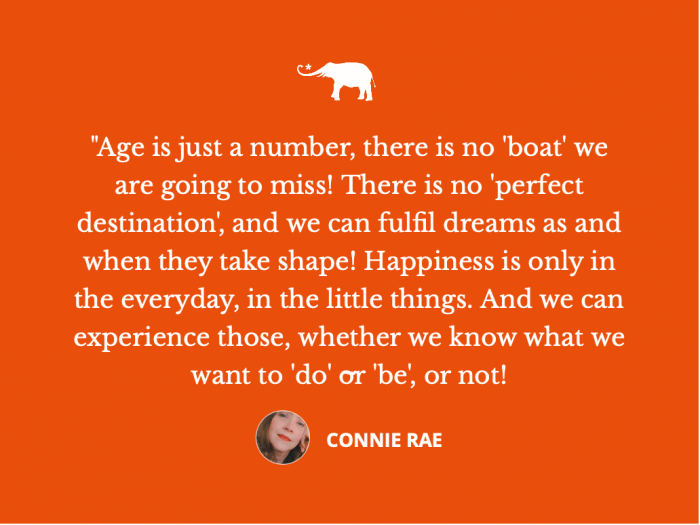*Author’s Note: The names of the individuals in this article have been altered to protect their identity as per the counselor-client confidentiality agreement. Further, they are a mixture of stories from my therapy sessions and do not reflect the story of a single individual.
When I was growing up in India, there were only limited things we could be. A doctor, an engineer, or an accountant were basically the options presented to me.
The presenters of these options knew, as well as I knew, that the first two were not available options. Since sciences and maths were like double dutch and I had struggled to get a US High School Diploma, an accountant it was.
So I did an A level (AP) in accounting, business, and economics, and applied for an undergraduate degree in commerce. Well, I didn’t get in and my life crumbled for a while.
I trudged through English degrees with no idea of what I would or could do. But one thing was certain. As soon as I finished those courses, I became an adult. I got a job—the best one I wanted, I worked hard, and I got married. Eventually, as I earned money, I bought a house with my husband, settled down, and had kids. I was reasonably happy, but I always knew there was more to this.
So, while I was expecting my second child, I went back to school and discovered counseling. I knew straight away that working in the mental health field was my calling, and as they say, the rest is history. Well, I know I’m not famous and it’s not actually history, but it sounds really good to say it. What I mean is, eventually, I got qualified and went on to work as a counselor, a counseling teacher, and a supervisor.
Fast forward to today, and my eldest child is currently choosing her A Levels and has so many choices to pick from. I have constantly told her she can be anything she wants to be, except that I haven’t exactly been that vague. I have done some research and sent her link after link after link to different university courses, but she still has no clue what she wants to be or do.
But I gradually changed my approach because my young clients have taught me some of the most valuable lessons in my life.
Here are a few examples:
>> Angela, who had dropped out of university after her first year, came to me two years ago in a low mood. She had suffered from anxiety and low mood since high school, which continued all the way into university. All this happened while her grammar school teacher told her to make choices, and her parents and grandparents continually asked her what she wanted to do when she didn’t know the answer.
So she carried on making the best choices she could, while knowing in her heart that despite being privileged and being told she could do anything, she had failed at the one thing she had to do: decide what she wanted to do. So, she felt like a complete failure when she eventually dropped out. Her parents had paid her way and she had failed.
>> Lucy came to me a year ago. She had gone away to university, graduated, and came back home in a low mood. She had recurring memories of an incident at her university that she couldn’t simply shake off; she felt like she had failed at the whole thing.
She hadn’t managed to enjoy her time at university and certainly didn’t know what she was now meant to do with the degree she had. Her future felt uncertain and scary. She was looking for a retail job despite being a university graduate because she had no idea what she could now be.
>> Joanne came to me about a month ago. She had also gone away to university, but despite enjoying her course, she felt it had been a broad one.
When she returned home, she was suffering from intense feelings of hopelessness and stress. We discussed how she had always had a goal even when she didn’t exactly know what she wanted to be. These included getting good grades in high school and in A Levels, getting accepted in a university, and performing well there.
Underlying all this was the presumption that she would know what to do once she graduated; however, now that she had, she realized that she really didn’t. And with no one there telling her what her next big goal was, she was petrified. Her family kept asking her what her plans were, while she felt like a rabbit in the headlights.
So what went wrong in all these scenarios?
My Generation X had more opportunities than the baby boomers before us. They had lived through wars and wanted to give us what they couldn’t have themselves. So having a choice of two to three careers seemed like a luxury. But then came the millennials or Generation Y, and after them, Generation Z, who could now, literally, be anything they wanted to be. Their own parents know well the agony of ending up in the wrong career.
Many of us, including myself, retrained while raising children and it was damn hard. We don’t want that to happen to our children. So we end up offering them everything we can. Personally, I have told my children to try and bring their creativity into their career choices. You know, so they will be happier.
However, there has never been greater pressure on young people to get a normal work-life balance. They see the YouTubers looking so happy and rich, and so the pressure begins. Their parents say, “You can have anything: money, education, trips abroad. You just need to find happiness.” But eventually, they end up using all these resources and still feeling clueless and miserable about their lives. On top of that, they also feel guilty because now, they are adults whose parents have made sacrifices for them.
So they eventually end up in a therapist’s office trying to find meaning and direction, but most importantly, some happiness.
But here’s the catch. According to a recent study, the prefrontal cortex, the part of our brain that is responsible for higher-level executive abilities including problem-solving and making decisions, continues to wire up well into our mid-20s and sometimes further. But, as parents, how are we expecting our children to make decisions that they haven’t often developed the capacity to make yet?
So what can we do? How do we solve this crisis?
As parents, we need our children to move on. We can’t just keep on supporting them forever, and even if we did, would we be doing them a favor? Certainly not.
We must help our children understand that becoming an adult is not the same thing as finding their dream career. Yes, we should talk to our children about the options out there, and yet, we should let them know that it is okay not to know.
If they want to go to university, then maybe it’s okay to pick a generic degree. But if they still don’t know, then it’s okay to pick a generic job and to retrain later when the right time comes.
As parents, we should reinforce the thought that age is just a number. Our children can fulfill their dreams when they actually take shape, no matter what age they are at. There is no boat that they are going to miss. It is important to become an adult and take responsibility for their own lives. That in itself is a whole skillset and an achievement.
They don’t have to fully know what their perfect lifelong dream job is going to be right now.
And most importantly there is no perfect destination that is going to bring everlasting happiness. They can find happiness every day in the little moments, regardless of whether they know what they want to do or be, or not.








Read 7 comments and reply